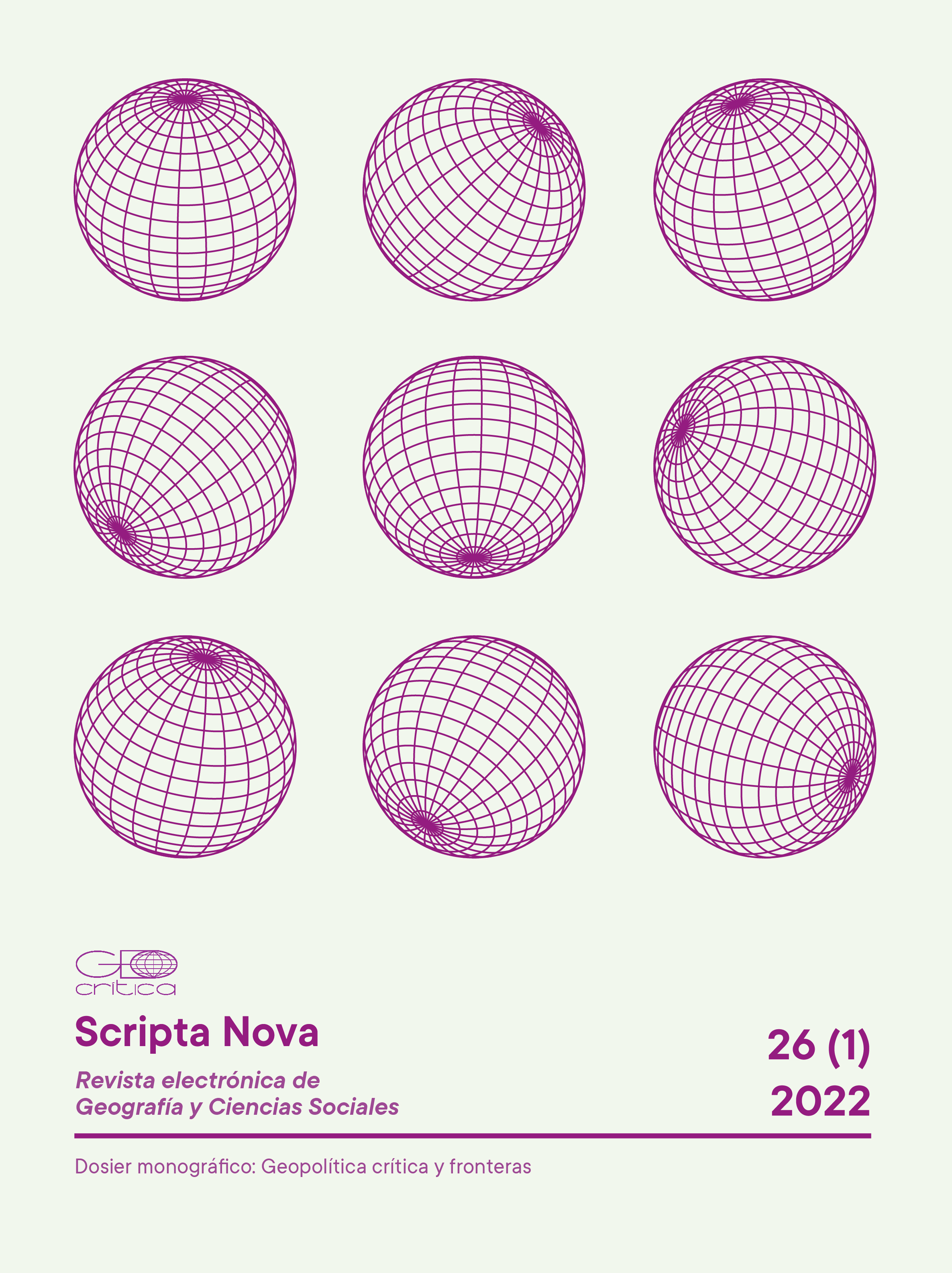Green gentrification in urban areas: the sustainable development goals and the appropriation of nature by the real estate market
DOI:
https://doi.org/10.1344/sn2022.26.35224Keywords:
Objetivos do desenvolvimento sustentável, Agenda 2030, gentrificação verde, mercantilização da natureza, produção capitalista do espaço urbanoAbstract
The performance of indigenous women as leaders of their peoples is growing in Brazil. In view of the dismantling of the environmental and indigenous policy, by the current government, and the extractive threat on indigenous territories, the right to territory is the main banner of struggle for these women, and the central motivation for their growing presence in spaces built by the indigenous movement. The notion of Body-territory is increasingly vocalized and gains new meanings among indigenous women in Brazil, who use it as a symbol for the inseparable relationship between people and territory. The present work seeks to affirm this as a cosmopolitical category, which illuminates capitalist contradictions, and is employed as resistance to the exception-dispossession process that produces naked life as a dehumanization necessary for the advance of accumulation.
References
Acselrad, H. 2010. Ambientalização das lutas sociais – o caso do movimento por justiça ambiental. Estudos Avançados 24 (68): 103-119. https://doi.org/10.1590/S0103-40142010000100010
Anguelovski, I., Connolly, J.J.T., Pearsall, H., Shokry, G., Checkerg, M., Maantayi, J., Gould, K., Lewis, T., Maroko, A. & Roberts, T.J. 2019. Why green “climate gentrification” threatens poor and vulnerable populations. Proceedings of the National Academy of Sciences 116 (52): 26139–26143. https://doi.org/10.1073/pnas.1920490117
Anguelovski, I. & Connolly, J. J. T. 2019. Green Gentrification in Barcelona. En Renaturing Cities. Town Planning and Housing editado por E.J Ballester, 100-112. Barcelona: Barcelona Provincial Council’s Press and Communication Office.
Baumgartner, W. 2021. Parque Augusta (São Paulo/Brazil): from the struggles of a social movement to its appropriation in the real estate market and the right to nature in the city. Sustainability 13 (09): 5150. https://doi.org/10.3390/su13095150
Gould, K.A. & Lewis, T.L. 2017. Green gentrification. Urban sustainability and the struggle for environmental justice. Nova Iorque: Routledge.
Harvey, D. 1996. Justice, Nature and the Geography of Difference. Oxford: Blackwell.
Henrique, W. 2005. Florianópolis/Brasil – a felicidade não tem preço, tem endereço: condomínios, loteamentos e a apropriação da natureza. Scripta Nova 194 (14): 1-13.
Marcuse, P. 1985. Gentrification, Abandonment, and Displacement: Connections, Causes, and Policy Responses in New York City. Journal of Urban and Contemporary Law 28: 195-240.
OCDE (Organização para a Cooperação e Desenvolvimento Econômico). 2020. A Territorial Approach to the Sustainable Development Goals: Synthesis report. Paris: OECD Publishing.
ONU (Organização das Nações Unidas). 2015. Transformando Nosso Mundo: A Agenda 2030 para o Desenvolvimento Sustentável. Brasília: ONU.
Pearsall, H. 2010. From brown to green? Assessing social vulnerability to environmental gentrification in New York City. Environment and Planning C: Government and Policy 28: 872-886. https://doi.org/10.1068/c08126
UN-Habitat (United Nations Human Settlements Program). 2020. World Cities Report 2020. Nairobi: United Nations Human Settlements Programme.
Wacquant, L. 2004. Critical Thought as Solvent of Doxa. Constellations, 11 (1): 97-101. https://doi.org/10.1111/j.1351-0487.2004.00364.x
Downloads
Published
Versions
- 2022-06-20 (2)
- 2022-04-01 (1)
Issue
Section
License
Copyright (c) 2022 Wendel Henrique Baumgartner

This work is licensed under a Creative Commons Attribution 4.0 International License.
Los autores que publican en esta revista están de acuerdo con los siguientes términos:
- Los autores conservan los derechos de autoría y otorgan a la revista el derecho de primera publicación, cin la obra disponible simultáneamente bajo una Licéncia de Atribución Compartir igual de Creative Commons que permite compartir la obra con terceros, siempre que estos reconozcan la autoría y la publicación inicial en esta revista.
- Los autores son libres de realizar acuerdos contractuales adicionales independientes para la distribución no exclusiva de la versió de la obra publicada en la revista (com por ejemplo la publicación en un repositorio institucional o en un libro), siempre que se reconozca la publicación inicial en esta revista.





